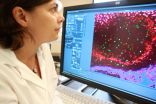"It will always be easier to say 'no' to research with children on the grounds that it's too difficult, but we should challenge the idea that it is acceptable to continue to offer healthcare to children without seeking to improve the evidence base for many of the treatments provided," says Professor Bobbie Farsides, Chair of the Nuffield Council on Bioethics Working Party and Professor of Bioethics at Brighton and Sussex Medical School.
The report is the result of a two-year inquiry, which has heard from over 500 professionals, parents, children and young people, in the UK and internationally.
In many areas of child health, evidence on childhood diseases and treatments remains limited because of a lack of research specifically with children. For instance, many medicines prescribed to children have not been developed specifically for children, meaning that doctors must use their expertise to adapt adult doses.
Research in areas such as childhood leukaemia, where survival rates are now over 80%, demonstrate the crucial role of research in improving healthcare. The Council argues that research with children should become a core part of the NHS.
"Being invited to take part in research can come at very difficult times in children's and parents' lives", said Professor Farsides, "but children told us time and time again that it was important they should be asked to take part in research, particularly as it may help other children in future."
Children should have a say in the whole research process
The starting point for most health research is adult needs, leaving children's research lagging behind. But there are examples where children and parents help set research priorities, and the Council supports these initiatives. For example, the James Lind Alliance has worked with parents, researchers and health professionals to set out the 15 most pressing research priorities in preterm birth.
The role of research ethics committees (RECs) is to assess the value, risks and benefits of all research proposals. However, members of RECs told the Working Party that they can feel anxious about approving research with children. The Council concludes that to make properly informed decisions, RECs should have access to experts in child health who can advise on the risks or burdens of normal practice, and areas where there is a lack of evidence. The Council recommends that registers of experts in different areas of child health should be set up and that employers should ensure that doctors' time to serve on ethics committees is protected.
Additionally, RECs should require researchers to have listened to children and parents when developing their studies. An example of this is the UK network of Young Persons' Advisory Groups (YPAGs). These are groups of 8-18 year olds who advise researchers on whether their proposed studies and information materials are acceptable to children - for example, by commenting on language, the number of blood tests or days off school required. The Council recommends that industry should help fund YPAGs, for example through a central fund to protect the groups' independence.
"Research should always be subject to robust scientific and ethical review, but by speaking to children and their families, researchers can design studies which are more suited to their needs, and ultimately more acceptable," says Hugh Whittall, Director of the Nuffield Council on Bioethics. "Throughout our project, we've heard from children with strong opinions on complex ethical and scientific issues. We shouldn't underestimate them. Alongside appropriate regulation, we need a change in culture to ensure that children have a say in the whole research process."
Children should be actively involved in decisions to take part in research
Under UK law, young people aged 16 or above can give their own consent if they want to take part in research. Under 16, parents consent on behalf of their children. While there is usually a requirement to provide information to children, there is little agreement on how children should be involved in decisions to take part in research under the age of 16.
The Council concludes that, where possible, decisions to take part in research should be a partnership between researchers, children and their parents; and that children should be as involved in decision making as they are able, and wish to be.
"As soon as children are able to express their opinions, or give their views, we should respect them as individuals by listening to them. Parents will always be concerned with their child's well-being, and there may be times when those concerns override a child's wishes," says Dr Helen Sammons, member of the Working Party, and general paediatrician at the Derbyshire Children's Hospital. "However, in most cases, researchers should seek to get the agreement of both children and their parents to take part in research. Children don't suddenly become adults overnight at the age of 18, but develop their ability to make decisions with their parents' support."
Smarter regulation of clinical trials is required
Some incentives do exist to help encourage research with children. The 2006 EU Regulation on Paediatric Medicine requires that any trial of a new medicine should also include research with children, unless the medicine would treat a disorder that occurs only in adults. In these cases waivers may be granted. In its first five years, the regulation has led to 132 new medicines, or new uses for existing medicines, being licensed for children.
Although there has been progress, the Council concludes that the waiver system is not working as intended. Many adult disorders, such as some cancers, do not have direct equivalents in children, but this does not mean that the medicine being developed won't be effective in treating related disorders in children.
The Council recommends that EU regulation should be amended so that if the medicine has a possible related use in children, then waivers should not apply. Furthermore, the Council recommends that smarter regulation is needed to encourage companies to adapt off-patent medicines for children, including in age-appropriate formulations like syrups.
INFORMATION:
NOTES TO EDITORS
1. Contact
For a copy of the report or interview(s) with the authors, please contact:
Seil Collins, Communications Manager, Nuffield Council on Bioethics scollins@nuffieldbioethics.org / (+44) 0207 681 9619 / (+44) 0797 972 8674
@Nuffbioethics
#CYPResearch
2. Animation
The Council has worked with Mosaic Films to produce a short animation (Health research: making the right decision for me) which conveys some of the key themes of the report from the perspective of Mia - a character who goes through some of the questions and issues that might be raised when a young person is invited to take part in clinical research. The script was developed following a workshop with 14 young people aged 10-18 who had previously been in contact with the Council, but were not 'experts' in clinical research.
Animation is available online: https://www.youtube.com/watch?v=6yaKwLG_vlE
More about Mosaic Films http://mosaicfilms.com/
3. About the project
The report (Children and clinical research: ethical issues) was produced by an expert Working Party which included members with expertise in paediatric medicine, nursing, law, social science, ethics and psychology.
Over 500 children and young people, parents and professionals contributed to the project in a variety of ways: as members of the advisory 'stakeholder' group'; by submitting evidence; by taking part in consultative events and surveys; by facilitating and participating in school-based projects; by facilitating the wider involvement of children and young people; by critiquing an earlier draft of the report; and by advising on the content and format of the magazine and animation that aim to make the findings engaging and accessible for children and young people.
As well as an open call for evidence, the Working Party worked with the Global Health Reviewers' Network and the KEMRI Wellcome Trust Research Programme (Kenya) to produce modified versions of the call for evidence.
4. About the Youth-REC project
To support the evidence gathering process, the Council carried out a project on the involvement of children in clinical research, by facilitating a mock Youth-Research Ethics Committee (Youth-REC) with a group of young people from a junior school, secondary school, and sixth form college in the autumn of 2013 in the Brighton area. Children and young people were given a mock research protocol which focused on a novel way of identifying the most appropriate treatment for childhood asthma. The film captures the discussions of the young people at each school, and their thoughts on the protocol.
Videos and a report of the project are available online: http://nuffieldbioethics.org/project/children-research/films-young-peoples-perspectives-clinical-ethics-reviews/
5. About the Working Party
Members of the Working Party were appointed for their personal knowledge and expertise, and do not necessarily represent the views of their organisations. Biographies are available online. http://nuffieldbioethics.org/project/children-research/
Bobbie Farsides (Chair)
Professor of Clinical and Biomedical Ethics at Brighton and Sussex Medical School
Joe Brierley
Consultant in Paediatric and Neonatal Intensive Care at Great Ormond Street Hospital
Imelda Coyne
Professor of Children's Nursing at Trinity College Dublin, Ireland
Elizabeth Davis
Paediatric Nurse at the John Radcliffe Hospital, Oxford
Sara Fovargue
Reader in Law at Lancaster University
Robin Gill
Professor of Applied Theology at the University of Kent
Roland Jackson
Executive Chair of Sciencewise
Vicki Marsh ('job-share' with Sassy Molyneux)
Senior social science and public health researcher based at the KEMRI-Wellcome Trust Research Programme in Kilifi, Kenya
Sassy Molyneux ('job-share' with Vicki Marsh)
Senior social scientist based at the KEMRI-Wellcome Trust Research Programme in Kilifi, Kenya
Helen Sammons
General Paediatrician (Derbyshire Children's Hospital) and Associate Professor of Child Health at the University of Nottingham
Mark Sheehan
Oxford NIHR Biomedical Research Centre Ethics Fellow at the Ethox Centre and a Research and Fellow at the Uehiro Centre for Practical Ethics, University of Oxford
Susan Tansey
Medical Director (Paediatrics) at Premier Research Group Limited and Associate Director for Industry for the NIHR-CRN: Children (formerly Medicines for Children Research Network)
Marc Taylor
Chair of ISRCTN, a not-for-profit organisation that manages the unique identification of randomised controlled trials worldwide
Bridget Young
Professor of Psychology at the University of Liverpool
6. About the Nuffield Council on Bioethics
The Nuffield Council on Bioethics examines ethical issues raised by new developments in biology and medicine. Established by the Nuffield Foundation in 1991, the Council is an independent body, funded jointly by the Foundation, the Medical Research Council and the Wellcome Trust. The Council has achieved an international reputation for addressing public concerns, and providing independent advice to assist policy makers and stimulate debate in bioethics. http://nuffieldbioethics.org/

